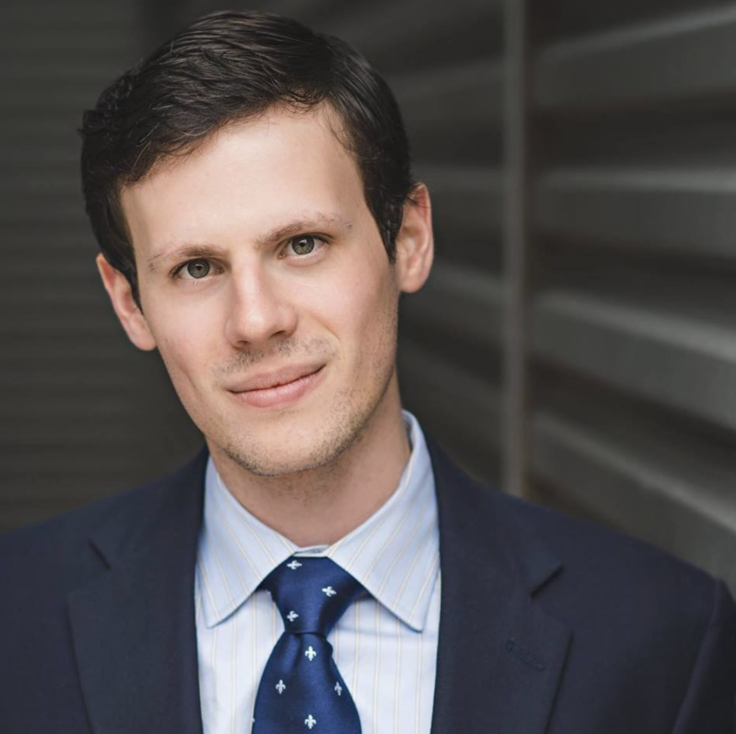Mark Gottlieb On The Role of A Literary Agent as a Brand Builder in the Corporate World
In a traditional sense, a literary agent is often seen as a gatekeeper, someone who sells books to publishers, negotiates deals, and sifts through manuscripts in a quiet corner of the publishing world. But for Mark Gottlieb, the Senior Vice President of Trident Media Group and a veteran literary agent, the role of a literary agent is far more dimensional.

To him, literary agents hold the power to build brands, not in a commercial sense of the word, but in a deeper, more resonant way of helping authors access and articulate their most authentic voice, and then guiding that voice into the world. That's what he brings to his work, where he represents some of the New York Times' bestselling and award-nominated authors while perpetually identifying gifted writers.
When Mark Gottlieb first began his journey in publishing, he encountered a biography that would quietly direct the course of his professional life: Max Perkins: Editor of Genius. The book chronicles the life of Maxwell Perkins, the legendary editor behind legacy writers, such as F. Scott Fitzgerald, Ernest Hemingway, and Thomas Wolfe.
What captivated Mark Gottlieb wasn't just Perkins' editorial eye; it was his unshakable advocacy for the creative spirit. "He was someone who fought for the artists' voice," he says. "He didn't want to censor Hemingway's profanity. He saw it as integral to the story, and that fight was something that resonated deeply with me."
Aside from polishing prose, Perkins protected integrity. He advocated for Hemingway when the publishing house balked at language. He opened his home to Thomas Wolfe when the author's life spiraled into chaos. "At one point," Mark Gottlieb recounts, "Wolfe was so upset, he stormed into a restaurant and punched Perkins in the face. But instead of walking away, Perkins suggested they hold their editorial meetings on the Brooklyn Bridge, miles away from alcohol in either direction." That radical empathy, that unrelenting belief in the author's truth, was what initially made Mark Gottlieb consider becoming an editor himself.
But the landscape had changed. "Publishing today isn't built like that anymore," he reflects. "It's a corporate machine. The editor, despite the title, often doesn't do much editing. They acquire books and oversee production. The real editing, the deep partnership, happens at the agency level." That realization was pivotal. Mark Gottlieb shifted course, moving into literary agency work not because it was a backup plan, but because it was the truest way to embody what he admired in Perkins.
As a literary agent at Trident Media Group, Mark Gottlieb finds that the most meaningful part of his job is this one-on-one creative relationship with authors. "You're the first set of eyes on the manuscript. You're the sounding board, the confidant," he says. "Before a book goes anywhere else, it comes through us. That's where the shaping begins, of the story, and most importantly, of the author's literary identity."
And it's this element of identity that defines the literary agent's role as a brand builder. Every author has a voice, often unrefined, sometimes hesitant, but always distinct. Here, the literary agent's task is to bring out that voice, guiding it to the fullest, most compelling expression. "We uncover the essence of what they're trying to say and align every part of their professional path with that essence," Mark Gottlieb explains. That includes manuscript development, but also media positioning, long-term strategy, and building relationships that reflect the spirit of their work.
Unlike editors in publishing houses, whose acquisitions are often restricted by genre or market requirements, literary agents are free to champion a spectrum of stories. "If I worked at a science fiction publisher, I could only acquire science fiction," Mark Gottlieb says. "But as a literary agent, I can help birth any kind of book, from memoirs to novels to political satire. There's a creative freedom in that."
And there's also entrepreneurial freedom. In traditional publishing, the success of a book might earn an editor job security and a modest bonus, but the profit largely stays with the publisher. Agency work is more personal and more precarious. "You eat what you kill," Mark Gottlieb says. "But it also means you're fully invested in the author's success, because it's your success too."
That alignment between values and vocation, author and literary agent, is what makes the process transformative. Mark Gottlieb recalls how some of the writers he's worked with have arrived with manuscripts, but also with life stories that needed to be untangled and understood before they could take shape.
In that sense, the literary agent's role is as much about curation as it is creation. "You're helping someone make sense of their own narrative," he says. "Not just in the book, but in the way they show up in the world." The industry may have evolved, but the essence of the work, the fierce protection of voice, the belief in story as truth, the labor of elevating others, still lives on in the quiet, often unseen work of the literary agent.
"To build a brand for an author," Mark Gottlieb says, "is not to package them. It's to understand them. To see their complexity, their chaos, their beauty, and help translate that into something the world can hold. That's a responsibility. And, at its best, it's an art."
© Copyright IBTimes 2025. All rights reserved.



















